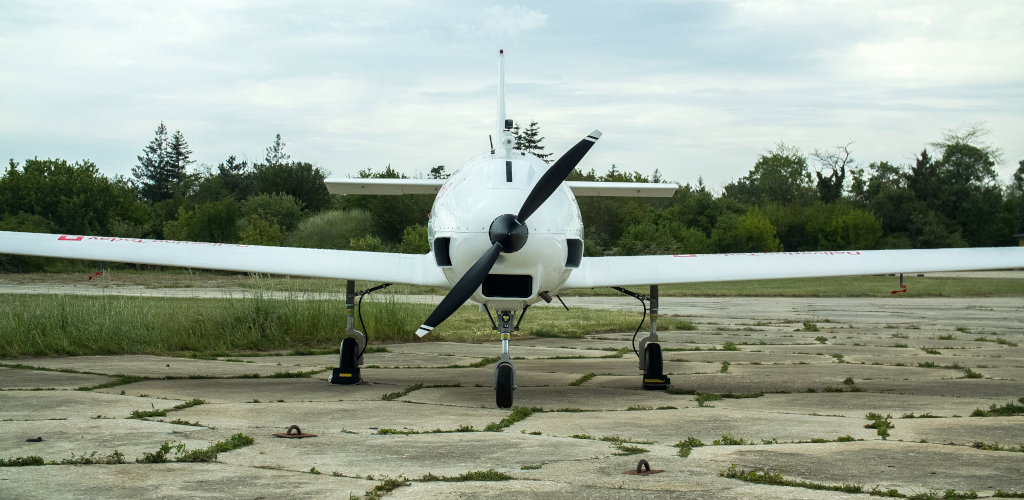Improving Tech Gives Drones Important Role in Supply Chain
 By John Bensalhia
By John Bensalhia
From Issue 4, 2024 of Breakbulk Magazine.
While the development of large-cargo drone technology remains a work-in-progress, so-called unmanned aerial vehicles (UAVs) are already helping logisticians save time and money, as well as opening up new air routes that had previously been too expensive or inaccessible.
Drones are proving particularly valuable for the “middle mile” stage of the supply chain. As a means of moving high volume cargo closer to its ultimate destination, the middle mile comprises the space between the distribution center and the local fulfillment center.
Having spotted the potential, logistics and supply chain company DB Schenker is working with German “urban air mobility” firm Volocopter, whose all-electric VoloDrone has a payload of up to 200 kilograms and a range of 40 kilometers.
With a test flight under its belt, the VoloDrone is designed to not only make middle mile deliveries more affordable, but also more environmentally sound, using zero emissions and quiet motors to ensure a clean, sustainable operation.
A partnership between The Port Authority of New York and New Jersey and Skyports Drone Services is another example of how inroads are being made in using drone technology to transport cargo between destinations. Skyports will assist the port with BVLOS (Beyond Visual Line Of Sight) operations and to reach previously inaccessible locations.
With respect to breakbulk operations, drone technology is still in its infancy. A more common use of drones today is to monitor the different stages of breakbulk handling, from loading through transportation to unloading. The drone can capture images and footage for the client, whether it be for administration, security or promotional purposes.
Severina Grozeva-Patrone, director of global communications & PR at Dronamics, which describes itself as the world’s first cargo drone airline, agrees that capability is much greater today with respect to breakbulk cargo. “Until recently, freight drones were mostly associated with courier, last-mile services. Drones with substantial payloads, while still a novelty, are a fast-growing segment with multiple use cases across cargo operations.”
Malta-based Dronamics has developed drone tech capable of carrying payloads of up to 350 kilograms or 3.5 cubic meters at a time, at a range of up to 2,500 kilometers. The goal is to serve middle-mile logistics and provide an air freight solution to remote and underserved locations.
The Port of Rotterdam has also assessed the benefits of drone technology, having received a demonstration from Israeli drone company Airwayz in March 2024. As well as cost savings, higher efficiency levels and improved sustainability, the Port observed that drone technology can help to streamline day-to-day operations and make it possible to deliver to ships at anchorage – something that had previously been considered impractical.
Looking ahead, Lia Popaz, digital media manager at FlyingBasket, an Italian-based commercial drone operator. says the potential of cargo drones for breakbulk is notable in small deliveries of cargo of up to 100 kilograms from ports to ship. “The industries of oil and gas, energy and others can benefit from the flexible method of transportation via FlyingBasket cargo drones, which can deliver on sling and fixed cargo even beyond visual line of sight.”
Severina Grozeva-Patrone added: “Dronamics is setting up operations at drone ports near strategic ports in Europe, such as Greece, and the Middle East, and it won’t be long before we can offer faster, cheaper, greener services.”
DB Schenker and the port of Rotterdam are exhibitors at Breakbulk Europe.
PHOTO: Dronamics' Black Swan cargo drone. CREDIT: Dronamics
